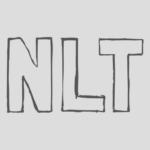Products and services depreciate, but knowledge doesn’t
We are at the beginning of an era of rapid demonetization. Thanks to technology, products and services that were expensive are becoming cheap or even free. For example, a photo and video camera, a watch, an audio player, maps, encyclopedias — all this used to cost money, but now it’s on every smartphone.
This process will continue to accelerate. Virtual reality will make expensive activities such as concerts and sporting events cheaper. CRISPR technology, artificial intelligence diagnostics and genome sequencing will fundamentally change the healthcare system.
In such a situation, those who recognize and quickly acquire the skills necessary for the professions of the future will benefit. And those who don’t learn new things will be at risk. They can get stuck at the bottom of the competition and lose their jobs due to automation.
The fundamental level of knowledge is becoming a separate form of currency. Knowledge is new money.
The difference is that when you use or share knowledge with someone, you don’t lose it, unlike money. You can “transfer” knowledge anywhere in the world instantly and for free. They can be converted into something money can’t buy. For example, a genuine relationship or feeling good. They help you achieve your goals faster. It is interesting to buy them. They expand vocabulary and improve communication skills. They help us look at the world from a new perspective and live many lives.
6 continuous learning skills that will help you in the new economy
Alvin Toffler
futurist, writer.
Illiterate in the 21st century will not be those who cannot write and read, but those who cannot learn, forget and relearn.
1. Identify valuable knowledge in a timely manner
The value of knowledge depends on its scarcity. When new technologies change an industry, there is a shortage of people with the right skills — and there is a high compensation for these skills. Over time, more people buy them and the amount of compensation decreases.
2. Learn new skills quickly
Opportunities come and go unexpectedly. Therefore, it is important to learn new skills quickly. Understanding and applying mental models is a universal skill that everyone needs. Mental models form a knowledge base that will be useful in any field. With their help, you will learn faster.
3. Explain the value of your skills to others
People with the same skills sometimes get very different salaries and hold different positions. It depends on the ability to persuade others and explain. Most people spend years learning technical skills but forget about communication skills.
4. Convert knowledge into money and results
There are plenty of ways to turn knowledge into money. For example, find a job with a good salary, get a raise, start a successful business, become a consultant or expert in an industry.
5. Invest in training in such a way as to make the most profit
Everyone needs to find the right books, online courses, and training programs to achieve their goals. To create such a “portfolio”, use financial terms in relation to self-education: return on investment, risk management, minimum acceptable rate, hedging, diversification.
6. Be able to study
The speed of learning determines how quickly your knowledge builds up over time. For example, compare people who read one book a week to those who read one book a week to those who read one book a week. Over the course of a year, a difference of 16 books will accumulate.
Create your own training ritual
Set aside time to study: one hour five days a week. If you have a very busy schedule, break this hour down into several parts.
Exercise regularly. For an hour, resist procrastination and the desire to have fun.
Use life hacks to memorize and apply the information received. This will increase the benefits of your classes.
Stop thinking that knowledge is only acquired by the age of 5 to 22, and then you can move through inertia and hard work. To succeed in this age, you need to learn constantly.
Source: https://lifehacker.ru/constant-learning/
For questions regarding ownership, please contact the author of the original text.
